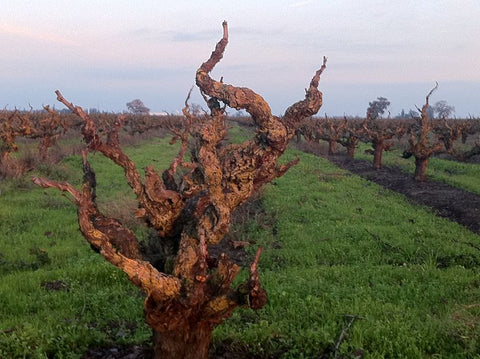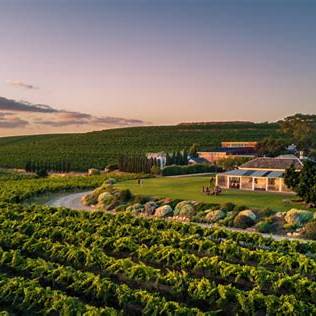Is McLaren Vale Wine Organic or Biodynamic? Exploring the Region's Sustainable Practices
McLaren Vale has established itself as one of Australia's leading regions for sustainable viticulture, with a significant and growing proportion of its vineyards managed under organic and biodynamic certification. While not all McLaren Vale wines are organic or biodynamic, the region has embraced these practices more comprehensively than most Australian wine regions, creating a diverse landscape where conventional, organic, biodynamic, and other sustainable approaches coexist.
The Current State of Organic and Biodynamic Viticulture in McLaren Vale
According to the most recent data from the McLaren Vale Grape Wine & Tourism Association, the region's commitment to sustainable practices is substantial:
- Approximately 37% of McLaren Vale's vineyard area is certified organic or biodynamic—the highest percentage of any major Australian wine region
- An additional 40% of vineyards follow sustainable practices that incorporate many organic principles without full certification
- More than 75% of McLaren Vale's total vineyard area operates under some form of sustainability certification program
McLaren Vale has become a national leader in organic and biodynamic viticulture. While not every vineyard follows these practices, the region has embraced sustainable approaches at a rate unmatched elsewhere in Australia.
This transformation has occurred relatively quickly, with the percentage of certified organic and biodynamic vineyards more than doubling over the past decade as growers have observed both quality benefits and growing market demand for wines produced using these methods.
Understanding the Different Approaches
To appreciate McLaren Vale's viticultural landscape, it's helpful to understand the distinctions between the different approaches practised in the region:
Certified Organic Viticulture
Organic certification in Australian viticulture prohibits:
- Synthetic chemicals, pesticides, herbicides, and fertilizers
- Genetically modified organisms (GMOs)
- Routine use of antibiotics and growth hormones
- Many processing aids and additives in winemaking
Instead, organic growers rely on:
- Natural composts and manures for fertility
- Mechanical and manual weed control
- Biological pest management
- Cover crops and green manures
- Natural yeasts for fermentation (in many cases)
In Australia, certification bodies like Australian Certified Organic (ACO), NASAA Certified Organic (NCO), and Organic Growers of Australia (OGA) provide third-party verification that wineries meet these strict standards.
Certified Biodynamic Viticulture
Biodynamic viticulture incorporates all organic principles while adding distinctive practices based on the work of Rudolf Steiner, including:
- Specially prepared compost additives (known as preparations 500-508)
- Timing of vineyard activities according to lunar and cosmic rhythms
- Viewing the vineyard as a self-sustaining ecological system
- Focus on enhancing vineyard biodiversity and soil health
- Consideration of energetic and spiritual aspects of farming
Certification bodies like Demeter Australia and the Biodynamic Research Institute (BDRI) verify adherence to biodynamic standards, which typically exceed organic requirements.
Sustainable Winegrowing Australia (SWA)
Many McLaren Vale vineyards that aren't fully organic or biodynamic participate in Sustainable Winegrowing Australia, a program that:
- Promotes sustainable practices without prohibiting all conventional tools
- Focuses on reducing environmental impacts through measured improvements
- Addresses water management, energy efficiency, and waste reduction
- Encourages minimal chemical intervention when possible
- Provides a pathway toward organic practices for conventional growers
SWA certification allows flexibility while still promoting environmental responsibility, making it attractive to growers transitioning toward more sustainable methods.
Why McLaren Vale Has Embraced Organic and Biodynamic Viticulture
Several factors have contributed to McLaren Vale's leadership in organic and biodynamic practices:
Perfect Climate Conditions
McLaren Vale's Mediterranean climate provides ideal conditions for organic and biodynamic viticulture. Our warm, dry summers naturally reduce disease pressure, making it easier to manage vineyards without synthetic fungicides and pesticides.
Key climate advantages include:
- Low humidity during the growing season reducing fungal disease pressure
- Reliable sea breezes providing natural ventilation in the vineyards
- Minimal rainfall during ripening reducing disease risk
- Consistent temperatures promoting even ripening
These natural advantages lower the risk associated with organic conversion compared to regions with higher rainfall or humidity.
Quality-Driven Motivation
Many McLaren Vale producers have adopted organic and biodynamic practices primarily for quality reasons rather than marketing advantages:
We converted to organic and then biodynamic viticulture because we saw clear improvements in fruit quality and vineyard health. The marketing benefits were secondary to the noticeable enhancement in wine character and sense of place.
Winemakers throughout the region report similar observations:
- Greater flavour intensity without increased ripeness
- Improved natural acidity balance
- Enhanced vineyard resilience during heat events
- More distinctive expression of site characteristics
- Better overall vine health and longevity
These quality improvements have encouraged continued adoption, even among producers who don't prominently market their organic or biodynamic status.
Preservation of Environmental Assets
McLaren Vale's proximity to the coast and areas of high conservation value has fostered environmental consciousness among growers:
- The region borders St. Vincent Gulf marine environments
- The Mount Lofty Ranges watershed requires protection
- Significant biodiversity hotspots exist throughout the region
- The area's natural beauty drives tourism alongside wine
This environmental awareness has made sustainable practices a regional priority beyond just vineyard considerations.
Research and Knowledge Sharing
McLaren Vale's organic and biodynamic movement has benefited from a strong culture of research and collaboration:
- The Australian Wine Research Institute (AWRI) has conducted extensive studies on organic practices
- Local grower associations facilitate knowledge sharing among producers
- Mentor relationships between established organic producers and those in conversion
- Regular field days and workshops focusing on sustainable techniques
This collaborative approach has reduced the learning curve for growers transitioning to organic methods.
The Spectrum of Practices in McLaren Vale
While the statistics demonstrate McLaren Vale's leadership in organic and biodynamic viticulture, it's important to understand that the region represents a spectrum of approaches:
Fully Certified Organic/Biodynamic Estates
Several prominent McLaren Vale producers have committed to 100% organic or biodynamic certification across their entire operations, including:
- Yangarra Estate (certified biodynamic since 2012)
- Battle of Bosworth (certified organic since 1995)
- Gemtree Wines (certified biodynamic since 2011)
- d'Arenberg (significant biodynamic vineyard holdings)
- Paxton Wines (certified biodynamic across all vineyards)
These producers have been instrumental in demonstrating the viability of these approaches at a commercial scale.
Mixed-Approach Producers
Many McLaren Vale wineries maintain both conventional and organic/biodynamic vineyard blocks:
- Some are in transition, gradually converting their entire estate
- Others maintain conventional practices for certain challenging sites
- Many experiment with different approaches to determine optimal methods for each vineyard
This pragmatic approach allows producers to implement sustainable practices where they work best while maintaining production reliability.
Uncertified Organic Practitioners
A significant number of McLaren Vale growers follow organic practices without pursuing formal certification:
- Some avoid certification due to administrative costs and requirements
- Others embrace most organic principles but want flexibility for occasional interventions
- Many small producers lack resources for the certification process but follow organic principles
There's a substantial 'organic in practice' contingent in McLaren Vale. These growers may not appear in official organic statistics but contribute significantly to the region's sustainable approach.
Winemaking Practices: Beyond the Vineyard
For wines to be labelled organic or biodynamic, both vineyard and winery practices must comply with certification standards. In McLaren Vale, sustainable approaches extend from the vineyard into the winery:
Organic Winemaking Practices
For certified organic wines, winemaking restrictions include:
- Very limited approved additives and processing aids
- Lower maximum sulphite levels than conventional wines
- Prohibition of many fining agents (egg whites and casein may be permitted)
- Restrictions on filtration methods
- Emphasis on minimal intervention
Biodynamic Winemaking Extensions
Biodynamic certification typically adds requirements like:
- Following the lunar calendar for key winemaking activities
- Using biodynamic preparations in the winery environment
- Additional restrictions on certain processing methods
- Further reduction in allowable interventions
Natural Wine Movement
McLaren Vale has also become a hub for Australia's natural wine movement, which often extends beyond organic/biodynamic requirements to include:
- Zero added sulphites in many cases
- Exclusive use of indigenous yeasts
- No fining or filtration
- Minimal to zero additions of any kind
While not all natural wines are certified organic, most follow organic principles as a baseline approach.
Finding Organic and Biodynamic McLaren Vale Wines
For consumers seeking organic or biodynamic McLaren Vale wines, several approaches can help identify suitable options:
Certification Logos
Look for these certification marks on bottles:
- Australian Certified Organic (ACO) bud logo
- NASAA Certified Organic symbol
- Demeter Biodynamic certification mark
- Biodynamic Research Institute logo
These third-party certifications provide assurance that the wine meets established organic or biodynamic standards.
Producer Websites and Materials
Many McLaren Vale wineries prominently feature their sustainable practices on:
- Website "About Us" or vineyard pages
- Back labels on bottles
- Tasting notes and technical sheets
- Social media content
Even producers without certification often detail their vineyard practices through these channels.
McLaren Vale Wine Region Resources
The regional wine association provides resources to identify sustainable producers:
- Sustainable Winegrowing Australia member directories
- McLaren Vale Grape Wine & Tourism Association guidebooks
- The McLaren Vale Organic and Biodynamic Producer List
- Regional maps highlighting certified vineyards
Taste the Difference: Organic and Biodynamic Wine Characteristics
While scientific debate continues about whether organic and biodynamic wines have consistently identifiable sensory characteristics, many McLaren Vale winemakers and critics observe distinctive qualities in these wines:
Common Observations About Organic/Biodynamic McLaren Vale Wines
- Heightened aromatic intensity – Often showing more lifted and complex aromatics
- Vibrant natural acidity – Frequently displaying better acid balance without adjustment
- Enhanced minerality – Many exhibit more pronounced mineral characteristics
- Greater textural elements – Often showing distinctive mouthfeel and structural components
- Site-specific expression – Typically demonstrating clearer terroir characteristics
- Improved aging trajectory – Many show more graceful development over time
The Future of Organic and Biodynamic Practices in McLaren Vale
The trajectory of organic and biodynamic viticulture in McLaren Vale points toward continued growth, driven by several factors:
Climate Adaptation
As climate change presents new challenges, organic and biodynamic approaches offer advantages:
- Improved soil water retention from higher organic matter
- Enhanced vine resilience from deeper root systems
- Better microclimate management from cover crop usage
- Reduced dependence on external inputs
Economic Sustainability
The economics of organic and biodynamic production have become increasingly favourable:
- Premium prices for certified organic/biodynamic wines
- Reduced input costs after the transition period
- Growing export demand, particularly in European markets
- Direct-to-consumer sales advantages through environmental storytelling
These economic factors are encouraging more growers to consider conversion.
Regional Identity
Sustainable practices have become increasingly central to McLaren Vale's regional brand:
- Environmental stewardship aligns with the region's premium positioning
- Sustainable tourism initiatives complement wine experiences
- Regional marketing increasingly highlights sustainable credentials
- Collaboration with local food producers strengthens the regional story
As this identity continues to develop, more producers are likely to embrace practices that align with this regional narrative.
Conclusion: A Region in Transition
McLaren Vale represents a wine region in transition, with organic and biodynamic practices playing an increasingly central role in its identity and production methods. While not every McLaren Vale wine is certified organic or biodynamic, the region's commitment to sustainability across all production models creates a dynamic landscape where these approaches continue to gain prominence.
For wine enthusiasts interested in organic and biodynamic wines, McLaren Vale offers an exceptional range of options—from established biodynamic producers with decades of experience to conventionally farmed estates gradually transitioning to more sustainable methods. This diversity ensures that consumers can find wines that match both their environmental values and taste preferences.
Whether you specifically seek certified organic and biodynamic wines or simply appreciate McLaren Vale's broad commitment to environmental stewardship, the region's sustainable journey enhances the quality and distinctive character that have made it one of Australia's most celebrated wine destinations.




Comments (0)
There are no comments for this article. Be the first one to leave a message!